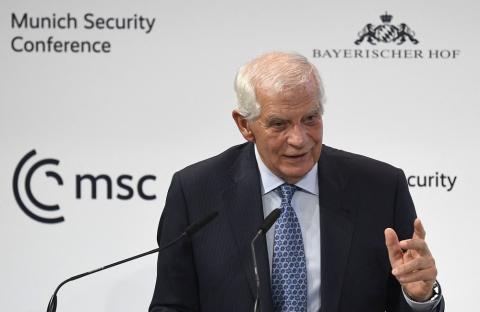
European Union foreign ministers have agreed on the need to engage with the Taliban but stopped short of formally recognizing the new government.
At a meeting in Slovenia, EU foreign policy chief Joseph Borrell said that at this moment it is necessary and that a presence on the ground in Afghanistan should be re-established.
"In order to support the Afghan population, we will have to engage with the new government in Afghanistan, which does not mean recognition, it is an operational engagement," Borrell told reporters on Friday.
According to the EU, cooperation is dependent on the Taliban meeting five conditions, including preventing the export of terrorism, respecting human rights, creating an inclusive government, allowing access to humanitarian aid, and allowing the departures of Afghan and European civilians who wish to leave.
When the Islamist group took over last month, the EU and many Western countries chose to close embassies in Afghanistan, limiting their influence on any new administration.
But now, Brussels is changing its tone, whilst remaining cautious about formally recognizing the Taliban, as well as how trustworthy the new government will prove to be.
It does, however, hope to keep any European citizens remaining in Afghanistan safely and prevent a new large influx of migrants coming to the bloc"s borders.
The EU foreign ministers Friday postponed discussions on relations with the Gulf countries due to lack of time, according to Borrell.
Afghanistan, relations with the Gulf and China were the three main topics on the agenda of the 2-day informal ministerial meeting held in Slovenia, which holds the current EU Presidency.
“Believe me it is just a matter of time,” he said, on the reason for the postponement at the press conference.
“At half-past-one we had to receive out Indian colleague (External Affairs Minister Jaishankar) and three o’clock the press conference was scheduled,” he said.
“The Gulf situation is something which we have to have very much on our agenda, but today it was impossible, It was just a matter of time.
“The discussion on Afghanistan took very long and this (the Gulf) was not such an urgent, pressing issue,” he added. — Agencies











